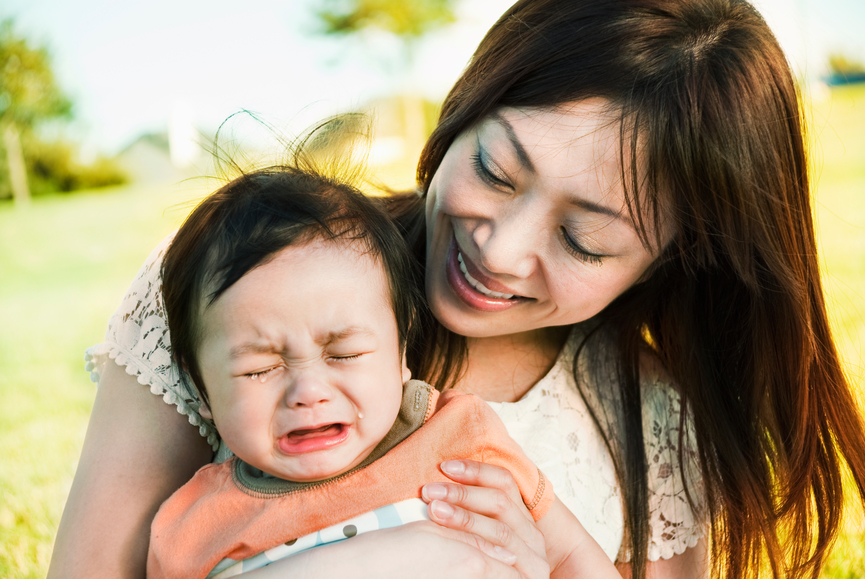Bellamy’s Organic. Confused about when to have your first baby? What’s the formula?
According to an article in the Harvard Business Review, having babies is even more costly that you might think. Prospective ...
Read MoreImportant notice to customers — product packaging changesLearn More
NEW FOOD PACKAGING IN STORE NOW
From August 2018, customers will notice our rebranded food packaging start to appear on shelf in all major stockists.
 CURRENT Packaging
CURRENT Packaging

 new Packaging
new Packaging
We are excited to announce our new packaging will start to appear on shelf from August 2018. This transition to new packaging will occur over a number of months. During this time there will be a mix of current and new packaging on shelf.
There are no major changes to these products, in some instances there is a small name change or slight recipe improvement, see below for the full details.
Products purchased via the website will be delivered to customers in our old packaging until the end of October. From November, products ordered from the website will be delivered in the new packaging.
Please note, our Infant Formula packaging will not be rebranded until later in 2019.
For any questions, connect with our team of accredited practising Dietitians on +61 3 6332 9200
Product name changes
 CURRENT Packaging
Organic Baby Rice
CURRENT Packaging
Organic Baby Rice

 NEW Packaging
Organic Rice with Prebiotic (GOS)
Note: Our Baby Rice recipe has been upgraded to now include GOS Prebiotic
NEW Packaging
Organic Rice with Prebiotic (GOS)
Note: Our Baby Rice recipe has been upgraded to now include GOS Prebiotic
 CURRENT Packaging
Organic Vanilla Rice Custard
CURRENT Packaging
Organic Vanilla Rice Custard

 NEW Packaging
Organic Milk & Vanilla Baby Rice
NEW Packaging
Organic Milk & Vanilla Baby Rice
 CURRENT Packaging
Organic Apple & Cinnamon Porridge
CURRENT Packaging
Organic Apple & Cinnamon Porridge

 NEW Packaging
Organic Apple & Cinnamon Baby Porridge
NEW Packaging
Organic Apple & Cinnamon Baby Porridge
 CURRENT Packaging
Organic Banana, Pear & Mango
CURRENT Packaging
Organic Banana, Pear & Mango

 New Packaging
Organic Banana, Pear, Apple & Mango
New Packaging
Organic Banana, Pear, Apple & Mango
 CURRENT Packaging
Organic Mango, Blueberry & Apple
CURRENT Packaging
Organic Mango, Blueberry & Apple

 New Packaging
Organic Blueberry, Mango & Apple
New Packaging
Organic Blueberry, Mango & Apple
 CURRENT Packaging
Organic Peach & Apple
CURRENT Packaging
Organic Peach & Apple

 New Packaging
Organic Grape, Apple & Peach
New Packaging
Organic Grape, Apple & Peach
 CURRENT Packaging
Organic Pumpkin & Tomato Risotto
CURRENT Packaging
Organic Pumpkin & Tomato Risotto

 New Packaging
Organic Pumpkin, Sweet Potato & Tomato
New Packaging
Organic Pumpkin, Sweet Potato & Tomato
 CURRENT Packaging
Organic Broccoli, Beef & Brown Rice
CURRENT Packaging
Organic Broccoli, Beef & Brown Rice

 New Packaging
Organic Beef & Vegetables
New Packaging
Organic Beef & Vegetables
 CURRENT Packaging
Organic Milk Rusks Toothiepegs
CURRENT Packaging
Organic Milk Rusks Toothiepegs

 New Packaging
Organic Milk Rusks
New Packaging
Organic Milk Rusks

Research tells us we are born with nine basic personality traits, and that the particular combination of these traits help determine who we are as a person. But that’s just part of it. How we respond as parents and caregivers to these unique tendencies in our children is actually the determining factor.
Let’s say you have a “shy” baby. If you give them a chance to warm up to people in their own time, they might be snuggling into the arms of Aunt Sally and giggling at Uncle Sam’s raspberries by the end of the visit. If, however, you throw them into a stranger’s open arms the moment they walk through the door, your child might be reluctant to go anywhere near strangers in future.
Following your child’s inner timeline and emotions is important for your child’s development of self-esteem and self-worth, because it is saying your child’s timeline and personality traits are okay. Traits should not be rebelled against, they should be embraced.
So how soon will you know what your baby’s like?
As a general rule, most of the nine pre-determined character traits are apparent by around three to four months. Some of these traits will be obvious, others you might have to look for.
Some babies will happily sit in their bouncer for an hour to watch the comings and goings of their home. Others will demand you pick them up within minutes of putting them down. Some babies are content as you change their nappy, while others are constant wigglers. These signs are good early indicators of the activity level of your child.
If your baby has low activity levels, it’s important not to overwhelm them with too much physical play. Instead, look for things they can do in their own time – an activity gym, toys on the stroller – basically anything that will motivate them to move when they’re ready.
For the highly active, expect the hitting of milestones early, and pay attention to safety. Active kids are often the ones involved in accidents.
Some babies sleep, eat and poop like clockwork, while others are totally unpredictable. Don’t stress about it either way. For a baby that thrives on a schedule, pander to it for now. This gives them a sense of security, and will make your life easier too. Eventually they’ll be able to tolerate the occasional missed nap.
If your child is unpredictable, don’t try to force them into a strict routine. Being rigid with a plan is more likely to drive you crazy, so instead try to offer structure with the same day-to-day elements such as nursing in the same chair. Try also to look at the positive – sure you can’t really plan your day, but at least if you’re late getting home for a nap it won’t be the end of the world.
Some babies coo and smile at everyone they meet, while others possess extreme stranger anxiety. If you have a social butterfly, enjoy it. Give them lots of opportunity to spend time with others and bring them with you when you’re running errands.
If your baby is more wary, try not to force him or her into uncomfortable situations. When attending playgroup, allow them to sit on your lap until they’re ready to hop down and explore. Don’t just plonk your child into a group of kids and expect them to play happily.
Some babies can’t wait to explore somewhere new or taste new foods, while others hate the idea of change. For the latter, taking trips away can be painful, as some babies simply refuse to sleep anywhere but their own cot.
If your baby is flexible, make the most of it. Explore the world, try new foods, but don’t take advantage of it. Just because your baby is willing to try a prawn at 12 months doesn’t mean they should. And just because they’re adaptable doesn’t mean you can race out the door as soon as the babysitter arrives.
For a baby that’s less flexible, you’ll need to make slow changes. For example, when heading to the park, take a few favourite toys from home. Or if you’re taking a trip, have your baby sleep in the travel cot for the week leading up.
Some babies will let you know that something’s wrong with the tiniest of whimpers, while others will scream the house down and find it hard to settle. If you’ve got yourself a screamer, it’s hard. And it will be for some time no doubt. Just take comfort in the fact that one day, this intensity will be applied to something else – their relationships, their school work, or their career.
If you’ve got yourself a quiet child, be sure you’re not confusing their quietness with contentment. You still need to pay close attention to their needs, even when they’re not screaming about them.
Some babies generally seem happier than others, and while it’s hard to contend with a baby that frowns more than it smiles it’s sometimes one of those things you just have to get used to. All you can do for an seemingly unhappy child is shower them with love and hope they learn to view the world more optimistically.
It’s also important that you determine that there’s no underlying problem that’s making them unhappy.
All babies cry at some point or another, but some are easier to distract than others. An easily distracted baby is a cinch to settle, whereas one that’s fixated could go on forever it seems.
For the easy baby, distraction can be used as both a good and bad tool, so knowing when to up their stimulation and reduce it is the key. For a focused baby, you’ll need to learn to act fast if you have any hope of stopping negative behaviour.
Some babies will cry after just one attempt, having already given up. Others will keep grasping for the toy despite it being clearly out of reach. For the baby with low persistence, don’t make your toy or activity choices too challenging. Rushing toys on to him that are geared for older kids will only frustrate him and leave him feeling inadequate.
If your baby is tenacious, continually increase the complexity of his toys to keep him challenged, and offer multiple toys for engagement.

A Japanese mother holding her crying 6-month old mixed-race boy (Japanese-Filipino-Caucasian) with love at a park.
Some babies don’t bat an eyelid when you’re giving another baby a cuddle, while others will sulk and cry until you put them down. Some babies will cry the moment they wet their nappy, while others could put up with a pooey nappy until it’s noticed.
For the sensitive baby, keep your environment as soothing as possible and avoid stimulating activities before bed times. If your baby is thicker skinned, be watchful with them. Often non-sensitive kids become subdued when sick instead of irritable, and you might miss a problem if you’re not actively looking.
Remember, this is just the start of a very long journey. As your baby grows, your behaviour offers great influence on their personality and more importantly on their reactions to the world around them. The good news is that as you get to know your baby, you’ll find it easier to respond to their different needs and moods.